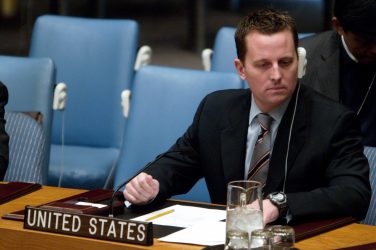A series of opinion pieces analysing Hungary’s political situation by understanding historical factors (part 1), the unsuccessful debut of democracy (part 2) and future prospects (part 3). All this, through the eyes and ears of an internationally raised Hungarian young-adult, E&M author Dominik Barabási.
Cultivating grapes requires forethought. Waiting patiently up to 80 years until it reaches its full potential and finally starts a stable yield. Teaching the knowledge and important skills for the next generations, allowing them to fulfill their ancestor’s dream and create their own purpose.
Hungary became a parliamentary republic in 1989, leaving fully encircled and closed borders behind. The diversity of available products in the Hungarian People’s Republic (or socialist dictatorship) was very limited. The shops only contained food that was necessary for survival and media platforms were restricted to communist propaganda. The fast and disorganised opening towards the international market resulted in an intense temptation to consume as much culture, goods and services as possible. This has created a general dissatisfaction, which then escalated into greediness. Money became the tool to make up for all those wasted years of monotony and the circumvention of the law became accepted to satisfy the itching need of purchasing power.
Giving a grapevine to a Hungarian in the 1990’s would have been risky. There’s a chance it would have been chopped to pieces to make the most out of it, without thinking ahead: This is exactly what is happening to Hungary since. Fidesz became an excellent winemaker for now and people drink its words like there is no tomorrow. But who are these tipplers and why don’t they see through the drunkenness?
The re-discovery of morality in Hungary
The successful implementation of democracy necessitates time to instil the basic notions of cooperation. Without that, people will only carry behaviours from a previous system, without knowing how to act on behalf of their freedom.
Is it right to show resistance in a dictatorship? Should I take back what is mine? Would I give up someone else for my own benefit? Questions that Hungarians often asked themselves during the socialist regime, which resulted in the re-thinking of their own morality. Because of being committed to a forced system, crime against it had lost relevance. Including stealing, which was seen as a need due to deprivation, a deserved bonus rather than sin. The florist setting flowers aside to make some extra income, the shop assistant putting sausages away for the night when no one notices or the customs accepting compensation for averting their eyes. However, with the establishment of democracy and the arrival of western materialism, money re-gained its value and the thirst of differentiation became stronger than ever, transforming into a desire for superiority. This has resulted in small delinquencies becoming serious offenses such as prostitution, burglary and murder. Being a rogue became a respectable way to succeed in society, which reflects well the mentality of that era. Lack of common values, peaking individualism and the total extinction of morality, including in politics.
An elderly relative of mine explained it to me: “We all know they are stealing, but who could judge, I would do the same”.
The 90’s privatisation was carried out by lay people who had no idea what it meant to be a politician, it is no surprise that they have forged a fortune with it. Corruption and theft reached a new level: handing over entire sectors to friends and family, embezzling deep into the pockets of public money and appointing positions to incompetents for self-interest. Nevertheless, the country has still been developing pretty well. At least we thought so until 2006, when the so-called “Öszödi” speech went viral in the media. “We stole, we cheated, we lied'”- the phrase of former prime minister Ferenc Gyurcsány, which sealed the fate of left-wing political movements. It became clear that the lectures around the continuously developing country were all myths. If you ask someone on the street today, they’ll still relate to this period as the darkest moment in Hungarian political history, however, it was way more than that: it was the reappearing spark of morality.
Yes, the scandal was followed by a series of demonstrations, which then escalated into police-brutality. Yes, people were taken as a fool once again and they were furious. And yes, Hungarian people clashed with the series of historically recurring misfortunes. But what did they get in return? In fact, more than they would have thought at that time: honesty. A political leader was completely honest for the first time in history, and maybe even the only time until today. This honesty allowed the nation to finally reunite after 50 years of silence and revive the importance of commonwealth. Did we finally understand the functioning of democracy? Did we recognise that we have a say in our own lives? For sure, the people have decided it is time for real change and that it is only possible together. Two years later, Fidesz received 52.7 percent in national elections. Did they meet the high expectations of the time? In fact yes, or at least they did their best to make it look like it.
The polarising hypocrisy of Fidesz
What is chaos for one, is a possibility for another. Especially in politics, where despair is the perfect time for long promises and strong leaders to create safety.
Being a good bottle of wine requires a trusted brand, an authentic appearance and a convincing taste. Everything that Viktor Orbán possessed before the 2010 national elections: trusted for his image of the “revolutionaire” during the regime change, authentic for being guided by morals and convincing thanks to his short and strong populist speeches. “From family to order” was at the heart of the Fidesz political campaign and its long time success. As a good winery would benefit from alcoholism, the party has taken advantage of the hopelessness in the country’s atmosphere. The fatalist collective memory mentioned in the first part and the influence of the communist dictatorship became the two biggest sources of power for Fidesz.
As a good winery would benefit from alcoholism, the party has taken advantage of the hopelessness in the country’s atmosphere.
The populist father image, the seemingly meaningless construction of football fields and the politics based on fear: a little nostalgia from the past to build up the Hungarian glory that was left behind and convince those who have been enslaved by the former dictatorial system. A political campaign built onto nationalists and aging generations. But what about the rest of the population? Why re-elect a government that is as corrupt as the previous, convicted one? Is it a result of a national Stockholm Syndrome, to always return to a leadership that cheats, steals, lies to us? An elderly relative of mine explained it to me: “We all know they are stealing, but who could judge, I would do the same”.
There is much more to be said but one thing is for sure: Orbán Viktor would be a very expensive bottle of wine. The current political leadership took over the role from small-scale rogues of the 90’s and began to play on a larger track. According to 2018 figures, there has been € 6.3 billion EU spending on Hungary, most of it handed out during Fidesz’s political career. Has all the money been put to good use? The rotting healthcare, the outdated educational system and the constantly declining countryside show otherwise. It is not enough that most of the money that would have laid the foundations for the country’s development was used to enrich the “party’s entourage”, but they didn’t even try to disguise it, all of it happened openly in front of everyone’s eyes. The institutionalisation of stealing has gone so far, that even the theft of our own country, and with it the exploitation of all of us, has become admissible. However, most of us remained prisoners of the old regime, only focusing on the well performing economy (unlike during the previous left-wing government) and ignoring the fact that we have allowed the formation of the era of rogues. Maybe this is because many of us secretly crave what has been given to our political leaders: orgies, drugs, luxurious boats and the knowledge of no consequence. Or maybe it’s all just changing with fashion: from god-fearing family men that were needed in 2010 to the perfect opposite of morality became cool again nowadays. Fidesz has reached the pinnacle of hypocrisy.
The closure of universities, the creation of homophobic laws, the filling of public media with propaganda, all this doesn’t matter. The Fidesz polling camp does not seem to be moving away, they seem to be tired of the constantly returning disappointment. It seems like they are still holding onto a dream: the image of morality which was once promoted by the party. True, Orbán Viktor has created the perfect atmosphere to keep the illusion: hate. The creation of common enemies (György Soros, Ferenc Gyurcsány, the EU), demagogue political campaigns and hate speeches adds to this illusion. All of this has torn Hungarian society apart, creating a more polarised nation than ever. We now have to live in permanent alertness: afraid to talk freely in a coffee shop, to ask questions that might undermine others’ political orientation. It feels like we relive the times of communism, we have to lower our voice again. It becomes hard to trust anyone, there is always the tension of what the person in front of us thinks. We cling so stubbornly to our own righteousness that we will not accept others if they are of a different opinion, no matter how good a person they may be. Is it the need of a new generation? Or the need for a new era? Is the old-fashioned, grounded political leadership giving security in a seemingly new, open world full of changes? Is it the uncertainty surrounding the future that drives the forces of political extremities all around Europe at the moment? Something we’ll discuss in the next part.






